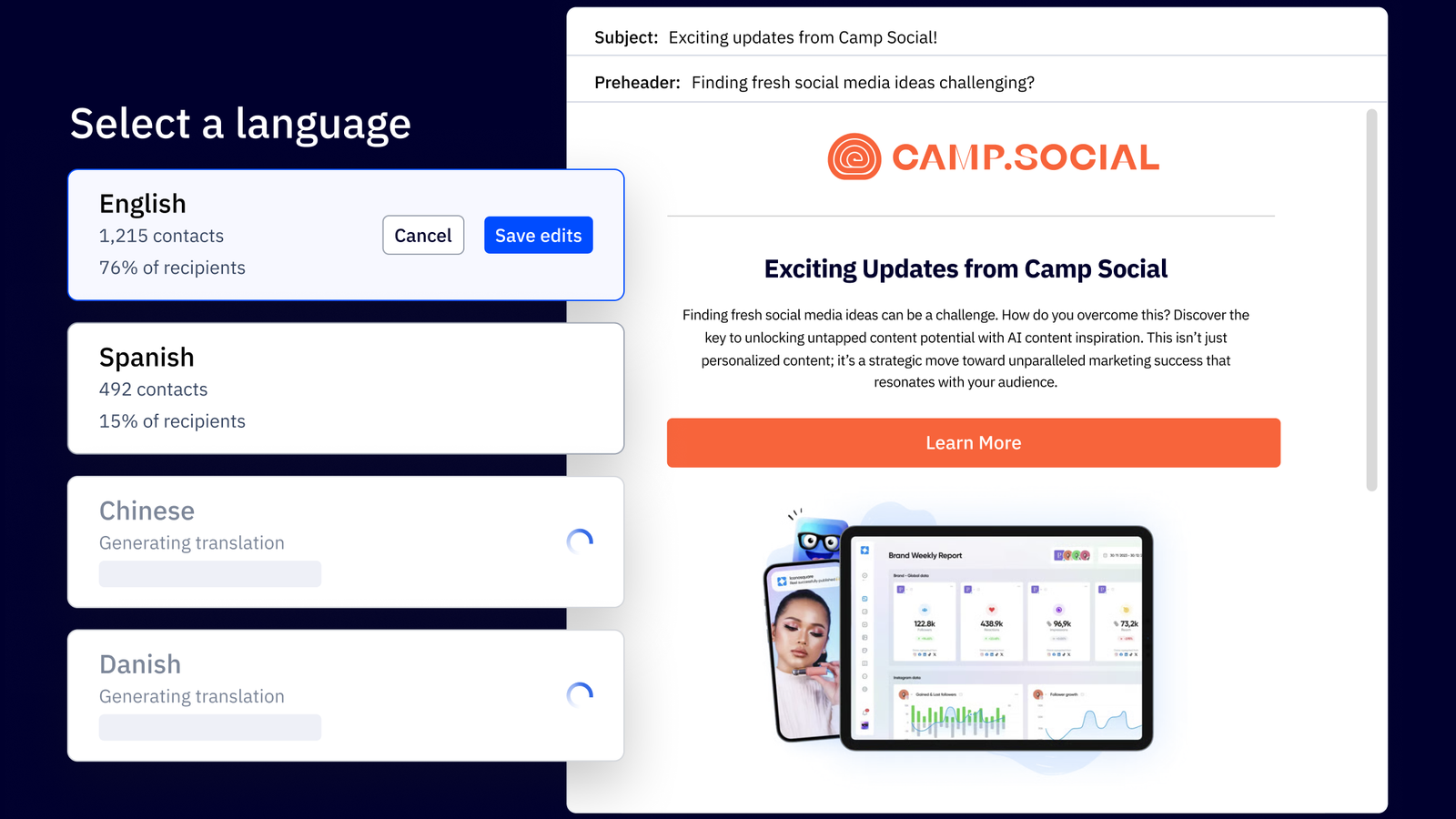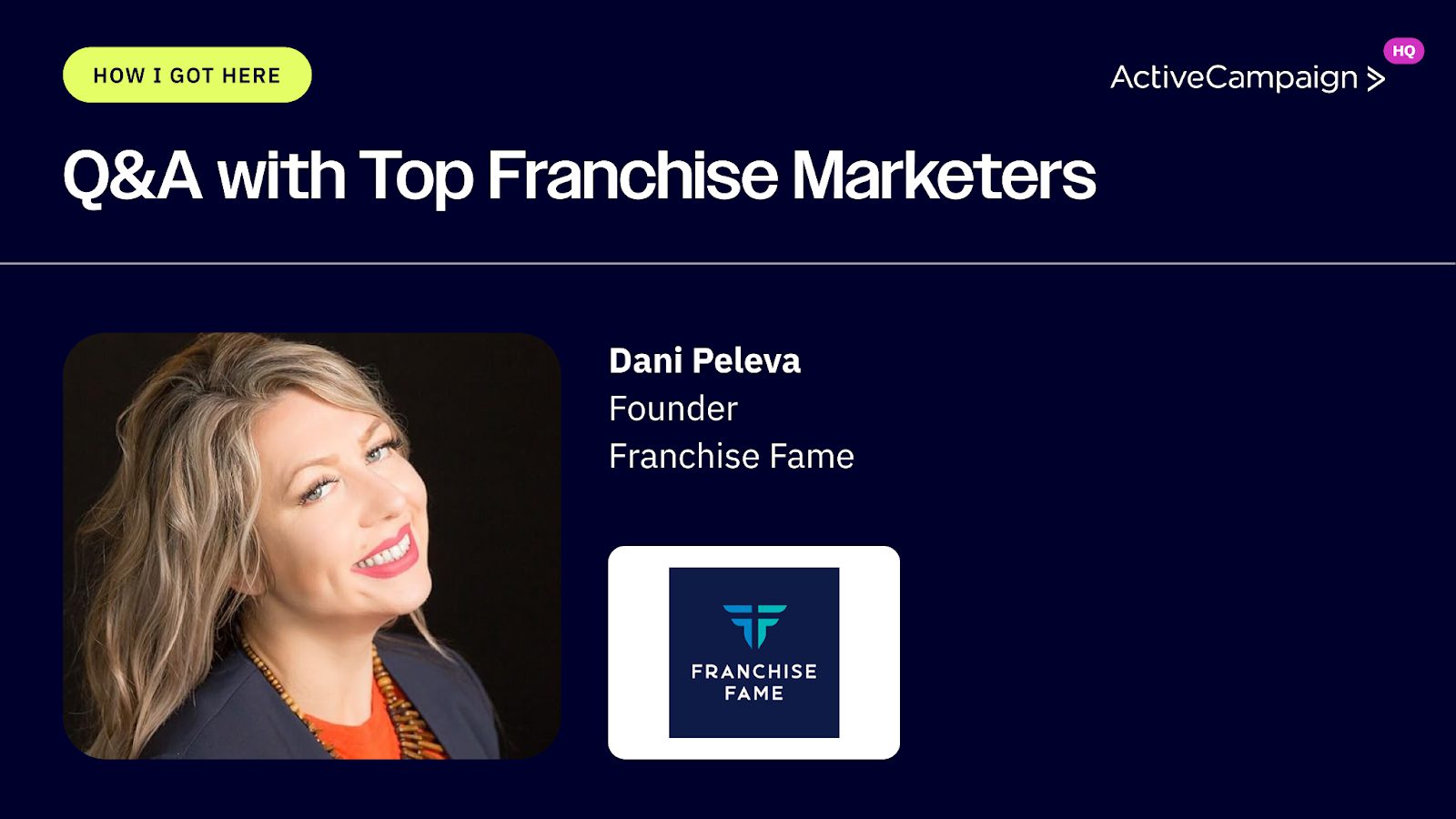If you follow marketing news closely enough, you’ll know that we are in the midst of a revolution: a once-in-a-decade platform shift fueled by the rise of artificial intelligence. As the way we all use the internet evolves, so does the way we must manage our franchises.
That’s why we’ve eagerly awaited the findings of SOCi’s Consumer Behavior Index Report — a survey of more than 1,000 consumers to get a pulse of how the average person discovers businesses online. If you’ve been a marketer for a while, the findings will make you lean forward and take notice.
According to the report, search traffic is down 10% and 19% of respondents are now using platforms like ChatGPT, Perplexity, and Gemini when searching for services and companies. That’s an entirely new behavior that franchise marketers have to grapple with.
To help unpack the report and how you can incorporate its findings into your marketing strategy we spoke with Kaci McBride, SOCi’s Senior Director of Strategic Consulting. As a former marketer for a large national retail chain, and now working with thousands of multi-location brands at SOCi, she’s spent the last five years helping franchises navigate the local marketing landscape and has perspective on how the macro trends impact operators.
Despite the excitement and panic around AI, her recommendations are a bit counterintuitive: start with the basics.
"19% of respondents are now using platforms like ChatGPT, Perplexity, and Gemini when searching for services and companies."
How do you advise corporate or HQ marketers to better understand the perspective of their local franchise owners?
At SOCi, we think a lot about the future of digital marketing. We're talking about our CBI report, we're talking about changes in AI search and what it means for consumers and all of the things that impact marketing and consumer behavior.
The corporate marketer may understand that, but then they're dealing with franchise managers who didn't necessarily sign up for digital marketing. We're over here talking about all this innovative stuff. They're kind of over here still talking about filling out their Google listings. There can be a disconnect.
"[Franchise] managers didn't necessarily sign up for digital marketing. We're over here talking about all this innovative stuff. They're kind of over here still talking about filling out their Google listings. There can be a disconnect."
Do you have any advice for trying to meet people where they are? How do you make sure one’s marketing advice is actually helpful?
Tailor it to the specific part of the customer journey. All of these strategies are interconnected. Like telling a franchise manager to adopt Google Posts more because it's going to help their SEO, that has a trickle-up effect that actually does impact their visibility in AI search without the franchisee even realizing it.
Instead of leading with the cutting-edge AI stuff, we start simple. When you take your local Google or social media presence seriously, more people are going to call. More people are going to request directions to your locations, and more people are going to recall your brand.
That has nothing to do with AI, at first. As we start to get them more comfortable, we can layer it into that these are also signals ChatGPT and Perplexity use. We can also show them how that impacts how they appear in AI search.
But if we tell them 50,000 people found them via AI after they optimized their local listings, that works.
"We can also show them how that impacts how they appear in AI search. But if we tell them 50,000 people found them via AI after they optimized their local listings, that works."
Can you think of an example interaction or story where a franchise owner wasn’t sold on the AI future, but then you got them there?
Always link it back to why it matters to them. For example, if I go in and I'm saying, “You know, you need to add more photos to your listings.” That seems like a daunting task. When I worked for a retailer as a marketer, I hated updating photos because it was such a pain. I had 800 locations to manage.
It's one thing to say, “Hey. You need to do this because it's important to SEO.” Ears shut off. They're like, “Yeah, okay. Whatever. I'm not doing this.”
But if you rephrase your reasons why to the business, like stating “Guess what? Google AI tech can interpret photos now. If you sell, say, flavored ice and upload a photo that looks like the flavored ice is watermelon flavored, Google will then help you appear in any type of watermelon flavored ice keywords in search results.
Oh, and by the way, there's 10,000 monthly searches for watermelon flavored ice. That's 10,000 potential customers that you're now going to appear for by just uploading an image.” That’s connecting the dots for the business owners and bringing data.
Another example of using data to get buy in: We had a makeup customer a few months ago. We advised them to set up local microsites, but only half had done the setup work. We were actually able to pull metrics of the folks that did adopt into the program, and show how they outperformed many metrics compared to those that didn't.
We showed a really great graph of how they paced relative to one another. I shared that with corporate. Corporate will be sharing that with the franchises. It's a lot of proving it to them with data.
How should a corporate franchise marketer interpret the findings of the CBI report? Is there anything you wanna highlight specifically for them?
Our CBI findings showed a diverse mix of how consumers are searching online now. I don’t care whether the customer is searching on TikTok, Yelp, Google, ChatGPT, or the company’s website. I don't care where it's happening. The materials that you need to publish and to put out just need to be oriented around the customer first and foremost.
It's not just about optimizing specifically for an algorithm or optimizing specifically for Google, these tools are now smart enough to dissect the content that you're putting out there and focus way more on relevance. It's not about tricking them with keyword optimizations.
Stop trying to put out content for the sake of content versus really honing in on what it is that your business is centered around. And how do you maximize and optimize for the customer purchasing it? What is a good experience?
The people who fail are the ones who try to trick the system by pushing out a ridiculous amount of web pages — that's not relevant. You don't need all of that. You just need core signals that are oriented around the consumer.
What does it mean to be “oriented around the consumer?”
It's a little more simplistic than we even realize. You are a consumer. Does this look good to you? Do you expect there to be an FAQ? Do you expect there to be images if you're visiting somebody's social profile? Do you expect them to respond to what you're posting? If you follow a brand on social media, how frequently do you want them to post? Do you want it to be all promotional-based content?
You need the right balance of content between branded, trendy, and promotional. Not just because we're trying to cheat the system and the system tells us that’s what the algorithms like, but because that's what consumers actually want to see. The system was built to reflect what consumers actually want to see.
If you're just building for what consumers like, not just machines, that's how you appease the Metas and Googles and GPTs of the world.
"Stop trying to put out content for the sake of content versus really honing in on what it is that your business is centered around. And how do you maximize and optimize for the customer purchasing it? What is a good experience? ... You just need core signals that are oriented around the consumer."
It can feel like we’re in a never-ending circle where the algorithm changes and so do our tactics. Does that make things more human in the long run?
Whatever you do, you do it because that's what improves your engagement rate. Because that's what your consumers prefer. And then the algorithms will follow.








